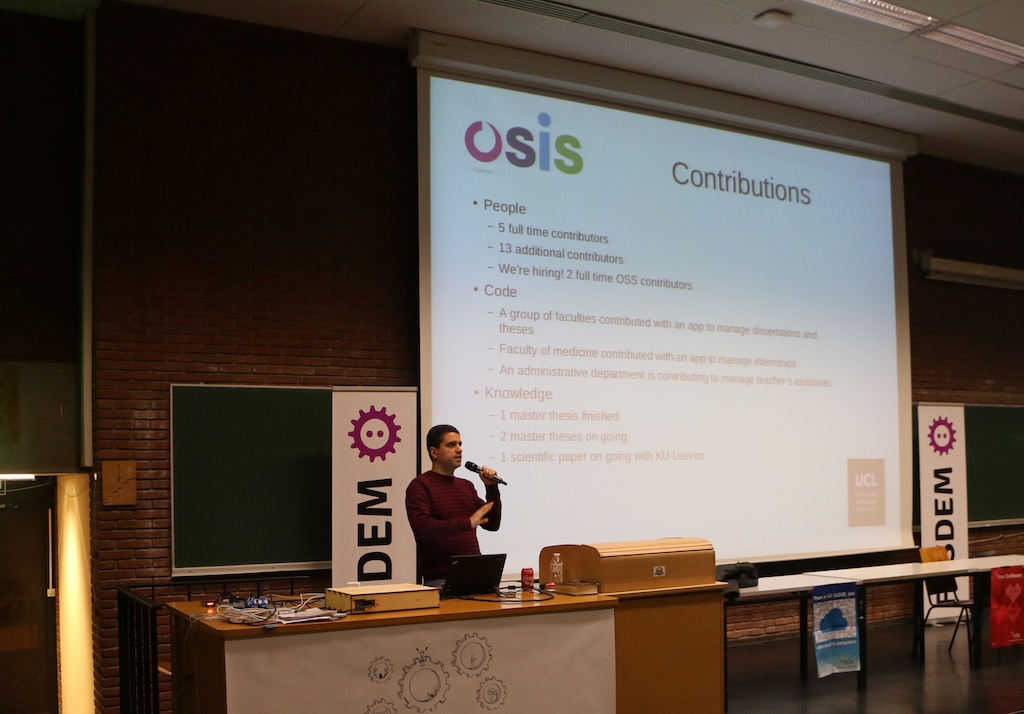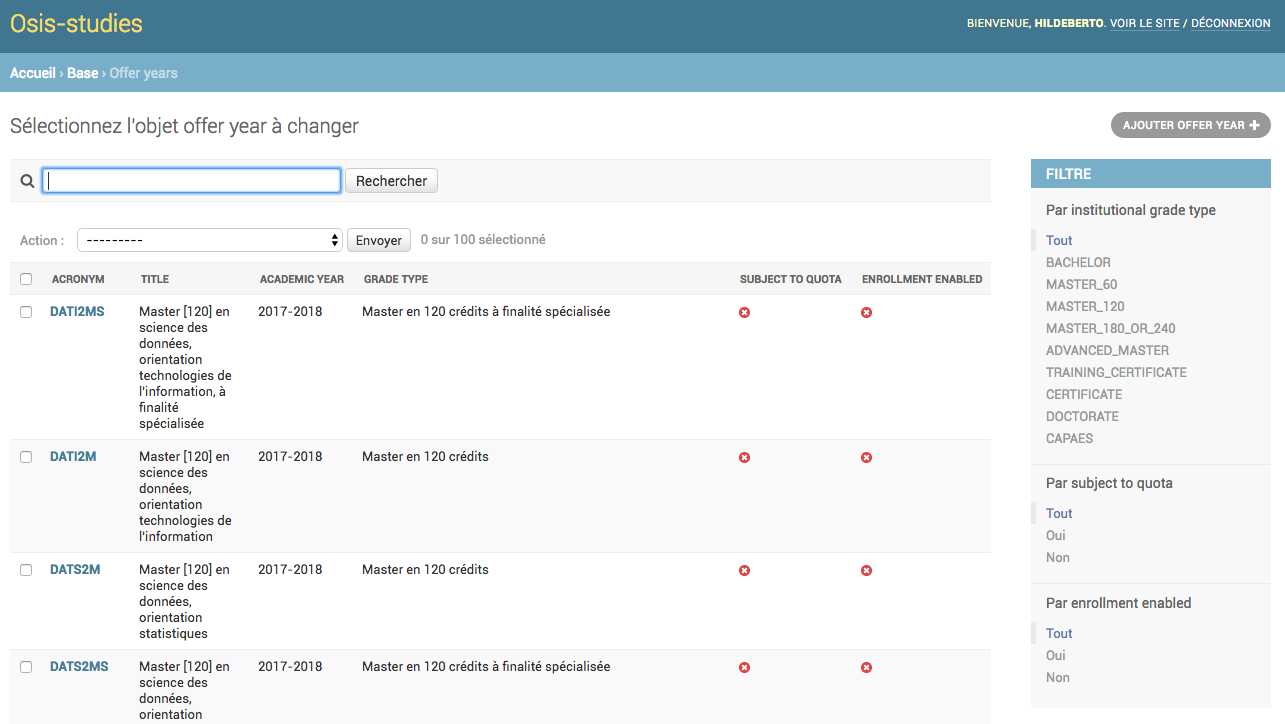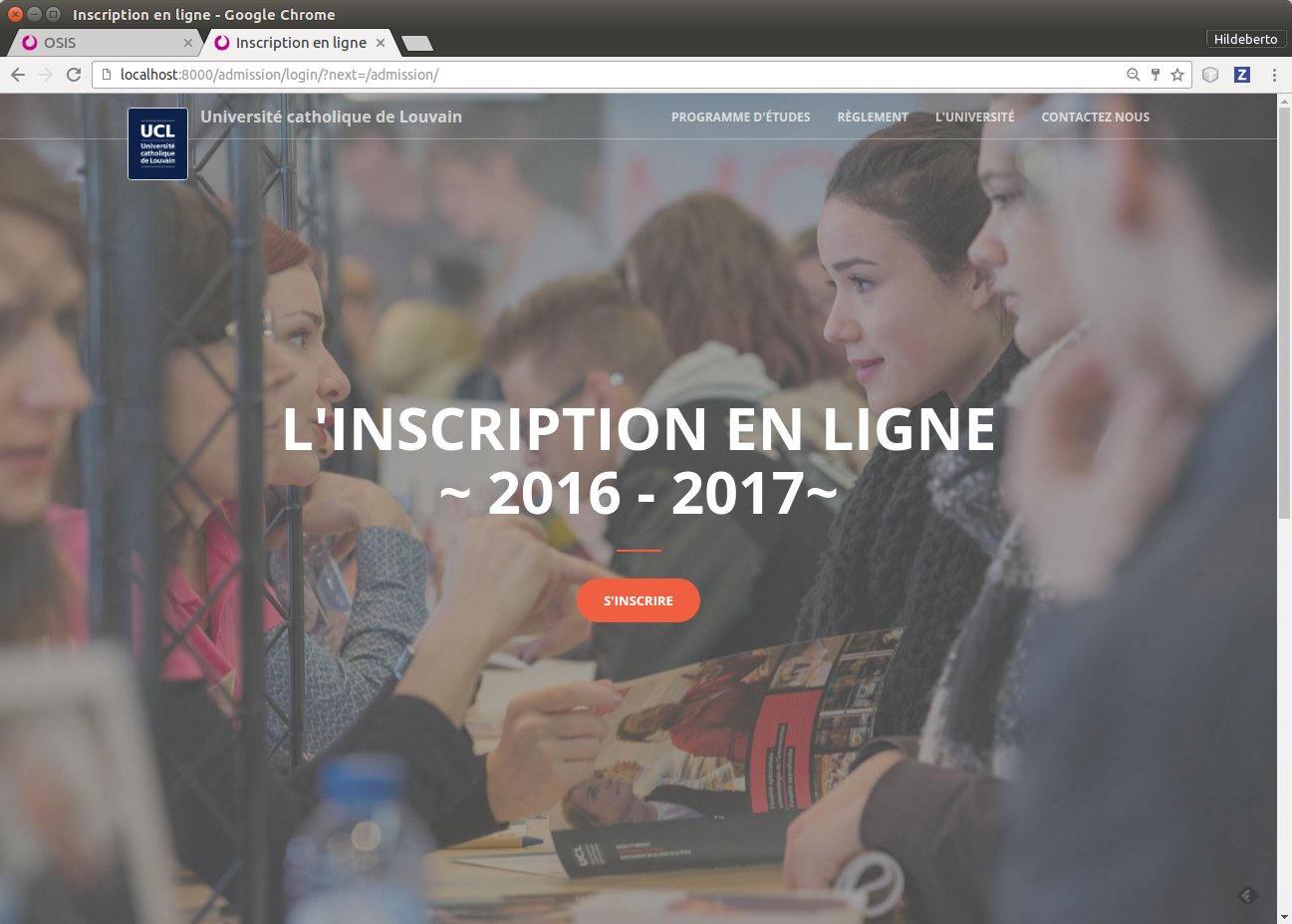OSIS Presentation at FOSDEM 2017
If you attended our talk at FOSDEM’2017, you’re well aware that the Catholique University of Louvain (Université catholique de Louvain - UCL) has decided to rewrite their core business applications in Python/Django, abandon the slow evolution and poor scalability of the JavaEE platform, and make the new application freely available as open source software. The talk shared with the community the experience on building OSIS, the open source transition, the cultural and technical shift, the engagement of students, teachers and employees on the improvement of their own user experience, the costs implied and the productivity gains.

The first release of OSIS happened a year ago, on January 31, 2016. We can say that this presentation is the celebration of its first anniversary. During this period, we have had great and tough moments. The greatest moment was the release of the score encoding app that has helped to save an enormous amount of time for teachers and administrative staff, by modernizing a previously paper-based process. The toughest one was the struggle to implement the admission process, revealing that the business complexity is still challenging, despite the simplification of the technical part. But along the way, we have had many more wins than failures, given that most of the problems we’ve faced in the past are now solved.
The full technical shift may seem radical for many, but the transition from Java to Python was the easiest part. Python allowed us to get rid of slow compilations, long redeployments, verbose code and a complex type system. The productivity skyrocketed instantaneously. Python is so straightforward that we’ve trained the team on the fly, with almost no evangelization discourse. Nowadays, when we have to maintain the old Java system people feel disappointed, eager to come back to Python. Django is actually the perfect replacement for JavaEE. We get the entire administration for free and write just enough custom features to improve the user experience.

On the other hand, being motivated about a technology and starting a project from scratch didn’t accredit us to open up the code right away. Nevertheless, we did it, in a GitHub repository since the very first line of code. As a knowledge engine, UCL wanted to see how much better the university would become in terms of efficiency if all the processes and functionalities were openly available for constant evaluations and contributions from the academic community, instead of closed to a group of experienced users who have valuable knowledge about the business, but little knowledge about how people actually use the application on the field. The university also wanted to:
- inspire entrepreneurs to build integrated services to improve students academic experience;
- empower departments, endowed with the necessary expertise, to fulfill their particular needs by extending OSIS;
- build up students’ experience on real world projects to boost their chances when applying for a job or founding a company; and
- reduce maintenance cost thanks to the stack of reliable open source products required by the application.
At the beginning, the development team had a lot to learn about this new thing called Open Source Software (OSS). They were hardcoding references to internal resources, writing code in French instead of English, leaving confusing comments for people out of context, badly formatted code, forgetting to add the license on the top of the files and all sorts of things, exactly like they used to do in the past. Fortunately, GitHub offers pull requests and we were able to review contributions before they got public. Over time, the culture changed and all these problems are gone.
As the project evolved, it started calling attention of the academic community. We had the chance to present the project several times for academic and administrative staff, generating new opportunities such as:
- A group of faculties decided to contribute with an application to manage dissertations and theses. More and more faculties are joining the initiative.
- The faculty of medicine contributed with an app to manage internships.
- An administrative department will soon manage the assignment of research assistants.
- INGInious, another open source project developed in the computer science department to conduct online programming exams, will soon submit the scores of the students directly to the score encoding app.
Many other additional applications will be under discussions in the coming months. That’s an amount of work our fixed team of 5 programmers wouldn’t be able to do. Being open source attracted contributions from 13 additional individuals as well as the engagement of the Université Saint-Louis in Brussels, saving lots of money and time.

We wish many other higher education institutions would join OSIS in the future to build the state of the art of student’s lifecycle management. This extends from the admission to the diploma and all information orbiting this fundamental process, such as planning the academic year, managing partnerships with other institutions for exchange and mobility programs, assigning teachers to courses and courses to students, etc. Any knowledge and technical exchange would be extremely valuable.
Last, but not least, we would like to thank FOSDEM’s team for the excellent organization and for attracting so many smart people from all over Europe!
Previously on OSIS Website
-
Proposal to present OSIS Accepted at FOSDEM'2017
-
Encoding the Scores of Thousands of Students
-
Welcome to OSIS Website!
subscribe via RSS.
